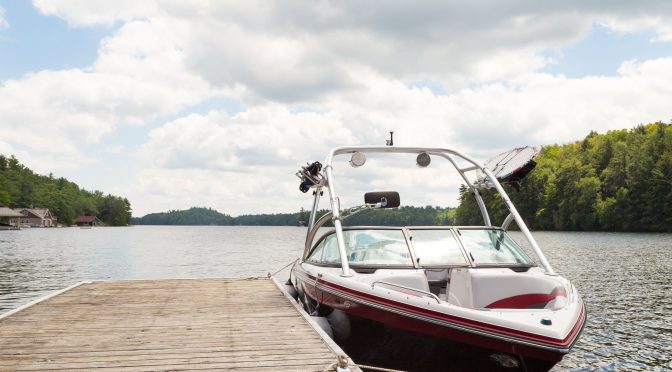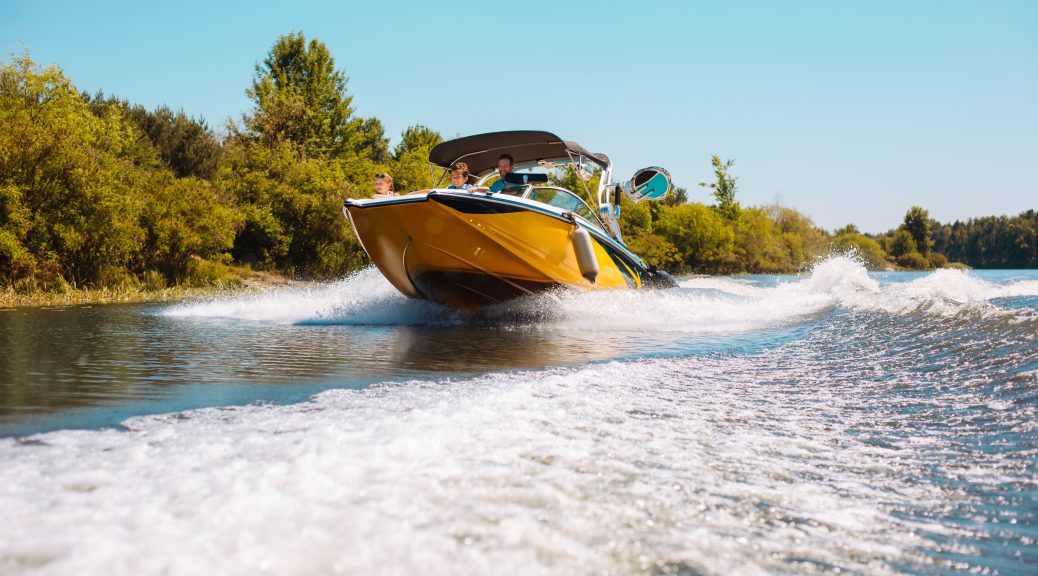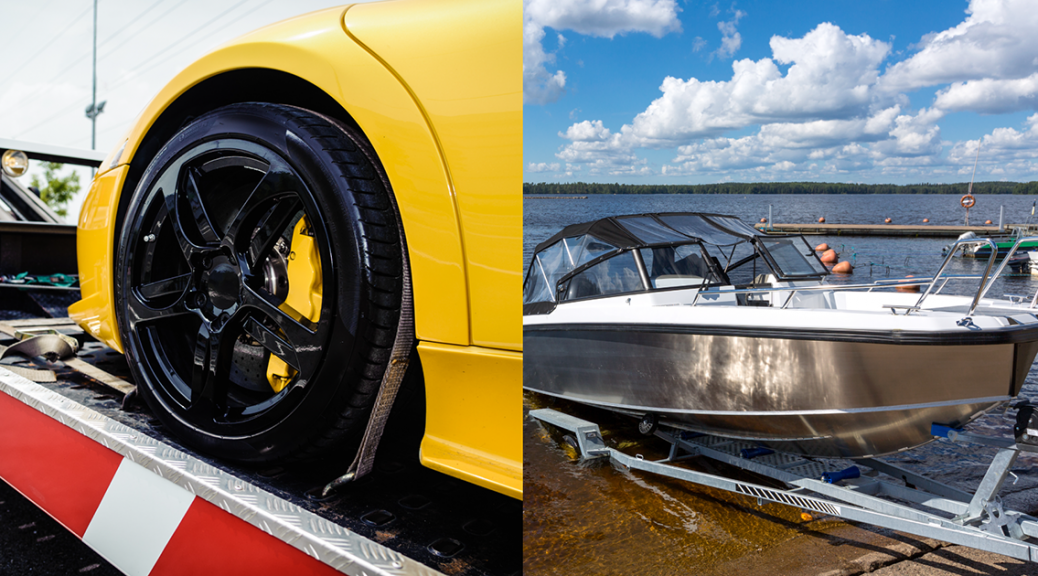It happens every year. The season comes to an end, and we have to put our boat away for the winter. Before you say your final farewell, however, take a little time for some maintenance. Handling these five winterization steps now, says Derek Wolfe, Watercraft Claims Specialist at American Modern, will make saying hello to your boat next spring even more joyful.
- Before winter storage, clean out all the damp and wet materials including any fabrics that can hold moisture. This will help prevent musty smells in the boat after the long winter.
- Be sure to clean and protect the canvas that protects your boat all season long. The reason for most canvas leaks is due to dirt being trapped between the canvas threads. The dirt will act like a funnel and allow water to pass straight through. Don’t forget to reapply a protectant to the canvas to preserve it from the elements.
- One of the most highly neglected boating accessories is not even on the boat—it’s the trailer your boat sits on. You trust the trailer to get your boat to and from the lake, but it’s rarely maintained until something breaks. Maintenance tasks such as brake service, paint protection, tire checks, lubing, and greasing the brakes and bearings will keep your trips on schedule.
- Remember to pull your boat’s hull drain plug when it’s stored out of the water. If your shrink-wrap or covers fail during the off-season, rainwater buildup could fill the bilge and submerge the motor and systems for a long period of time. That’ll ruin next season in a hurry!
- Be sure to have your boat, motor, and all systems professionally winterized. Most important, remember to have marine antifreeze installed. Marine antifreeze not only protects the systems from freezing temperatures, but it has corrosion inhibitors that help control the decay of metals inside the cooling systems. Relying on a knowledgeable marine service professional can put your mind at ease, because typically damage from freezing is not covered by most insurance policies.
For information only. Not applicable to all situations.








